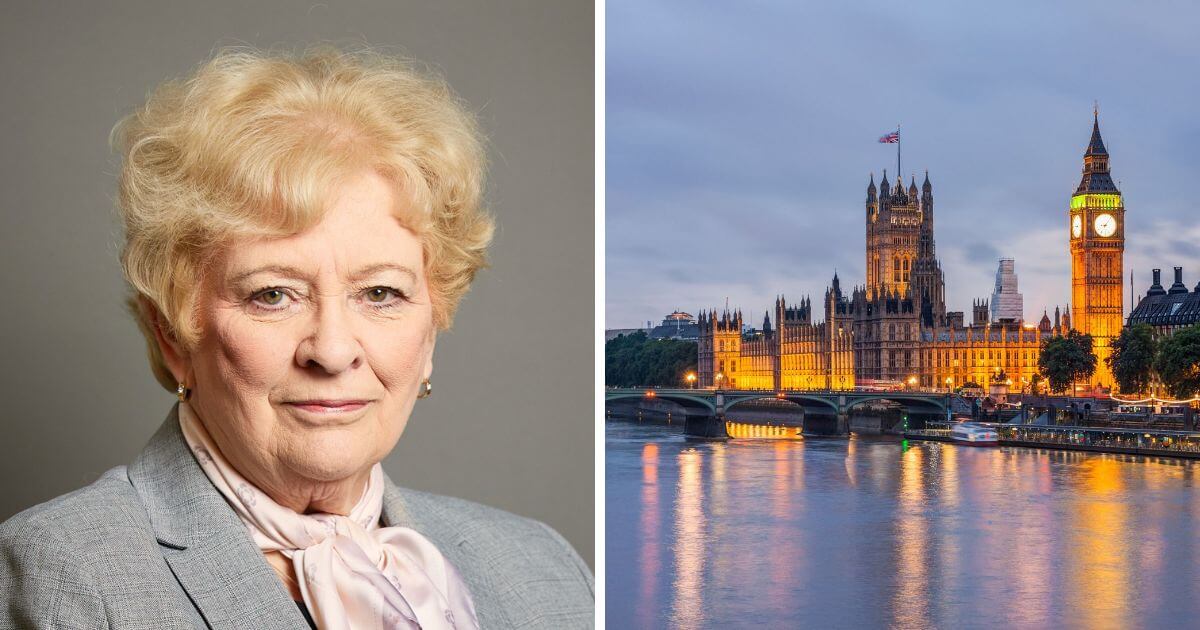As babies born before the abortion limit increasingly survive, a member of the House of Lords is launching a Bill that intends to reduce the abortion limit from 24 to 22 weeks.
Tomorrow, as one of the three pro-life bills drawn in the Lords Private Members’ Bills ballot last month, Baroness O’Loan will launch the Abortion (Gestational Time Limit Reduction) Bill in the House of Lords where the Bill will receive its First Reading.
The Bill will amend the Abortion Act 1967 so that the gestational time limit for abortion that is set out in Section 1(1)(a) of the Act is reduced from 24 to 22 weeks. This Bill would not affect other provisions of the Abortion Act 1967 such as the provision that abortion is permitted throughout all nine months of pregnancy in cases in which an unborn baby is thought to be disabled.
Since the abortion time limit was last reduced in 1990, there have been huge advances in medical science leading to significant improvements in the prospects for extremely premature babies.
From 28 to 24 weeks
In 1990, the time limit for abortion was reduced from 28 weeks to 24 weeks. The reduction in the time limit appears to have been significantly based on the results of a Royal College of Obstetricians and Gynaecologists (RCOG) working party report into neonatal survival rates, and several Parliamentarians referenced changes around viability as their rationale for supporting a reduction.
In the decade to 2019 alone, the survival rate for extremely premature babies doubled, prompting new guidance from the British Association of Perinatal Medicine (BAPM) that enables doctors to intervene to save premature babies from 22 weeks gestation.
Research published last month by academics at the University of Leicester and Imperial College London found the number of babies born at 22 weeks gestation who survive to discharge from hospital tripled between 2018-19, before the BAPM guidance was introduced, and 2020-21, after the BAPM guidance was introduced.
The 24-week limit is out of line with the majority of European Union countries, where the most common time limit for abortion on demand or on broad social grounds is 12 weeks gestation.
The median among EU countries is 12 weeks (this includes Denmark, Finland, Germany
and Belgium), 14 weeks in France and 18 weeks in Sweden.
At 12 weeks, the unborn baby is fully formed. All of his or her organs, muscles, limbs and bones are in place, and the sex organs are well-developed.
A large majority of the British public support reducing the abortion time limit: polling shows that 60% of the general population and 70% of women support a reduction in the time limit to 20 weeks or below.
“A clear step in the right direction to offer more protection to the most vulnerable among us”
Ahead of the launch, the sponsor of the Bill, Baroness O’Loan, said “Our abortion law is desperately out of step with our current medical practice that enables doctors to intervene to save premature babies from 22 weeks gestation”.
“This leaves a real contradiction in British law: in one room of a hospital, doctors could be working to save a baby born alive at 23 weeks, whilst, in another room of that same hospital, a doctor could perform an abortion that would end the life at the same stage”.
“A significant portion of the debate on the Human Fertilisation and Embryology Act, over thirty years ago, centred on reducing the then abortion time limit from 28 weeks to 24 weeks based on the greater likelihood of the survival of a baby born at 24 weeks given medical and technological advances”.
“Such a rationale formed part of the reason for the reduction of the time limit in the Abortion Act then, and it is right that a similar reduction, based on similar reasons, be implemented now”.
A spokesperson for Right To Life UK, Catherine Robinson, said “Our 24-week limit is out of line with the majority of European Union countries, where the most common time limit for abortion on demand or on broad social grounds is 12 weeks gestation”.
“Baroness O’Loan’s Bill is a clear step in the right direction to offer more protection to the most vulnerable among us”.
“There were a total of 261 babies born alive at 22 and 23 weeks, before the abortion limit, who survived to discharge from hospital in 2020 and 2021. According to Government abortion statistics, in 2021 alone, there were 1,054 abortions for babies at 22 and 23 weeks gestation. Sadly our society does not seem to recognise the contradiction between a law that permits ending the lives of these babies at 22 and 23 weeks and our health service, which strives to save the lives of babies born at the same gestational age”.
“As the survival rates for such extremely premature babies continue to improve, the contradiction at the heart of our UK abortion laws will come under increased scrutiny, highlighting the urgent need for change”.












